Tuesday 10 November UNICEF has estimated that nearly 1,500 children were killed since the start of South Sudan’s civil war, according to a recent briefing released by the agency. Wednesday 11 November Voice of America: South Sudan in Focus News Video. Thursday 12 November SPLA (IO) and government forces trade accusations over attacks in Leer… Read more »
Paris Attacks may have Consequences for European Cities
Attacks in Paris show how urban security challenges are becoming more complex. They ask difficult questions and present no easy answers.
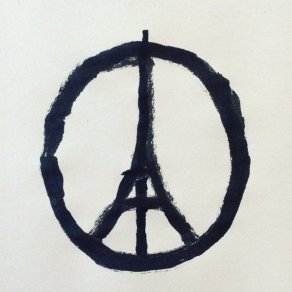
Peace for Paris by Jean Julien.
Friday’s attacks in Paris were an alarming reminder of the threats of organised violence in European cities. This comes less than a year after the assault against French satirical magazine Charlie Hebdo, and days after similar attacks in Beirut, in Lebanon, and Sinai, in Egypt. The coordinated events in the French capital were quickly linked with islamic terrorist groups, with ISIS on Saturday claiming responsibility. In response, the French President Francois Hollande declared a state of emergency, implemented curfews in Paris, and took the unprecedented step of closing French borders. Balancing outrage and agony, Hollande promised the response against those responsible to be ‘remorseless’.Read More
This Week in South Sudan – Week 45
Monday 2 November New accusations of ceasefire violations in areas south of Malakal, Upper Nile state. Wednesday 4 November Al Jazeera: ‘Hiding from horror in the swamps of South Sudan’ South Sudan’s government will release $10 million in a bid to shore up the economy and stabilize the rapidly rising black market exchange rate. President… Read more »
Segregation Kills: How Social Media Fuels Violence in African States
Pundits and academics alike tell us that we are supremely fortunate to be living in a new “information age.” However, new findings which I present in an article in a Journal of Peace Research special issue paint a far more complicated picture of the consequences of increased human connectivity.
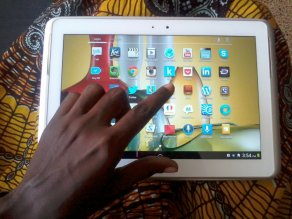
Linkages facilitated by social media technologies tend to be connections between friends and acquaintances. Photo: SandisterTei. Licensed under CC BY 3.0 via Commons
Ours is certainly not an age of civil peace. At this moment, neighbors are killing neighbors, in organized groups, in ongoing civil conflicts spanning at least 36 separate countries. Such violence is shocking in its brutality; but through our revulsion we tend to forget that in each of these conflicts, the lines of animosity were not simply given by nature. They were actively produced. Humans are not born knowing the difference between a ‘Serb’ police officer and a ‘Croat’ police officer, or the difference between a ‘Sunni’ mosque and a ‘Shia’ mosque. The participants had to be taught how to hate, and who to kill. In other words, the production of collective violence is always preceded by the production of a certain kind of collective idea: the idea that it is justified, or even necessary, for ‘us’ to kill ‘them.’
What is the Russian Military good for?
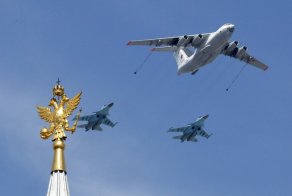 The Russian military intervention in Syria—launched in a great rush just over a month ago — came as a surprise; perhaps not as shocking as the swift occupation and annexation of Crimea, but a surprise nevertheless. But does Russia’s ability to surprise and to project force in Syria prove, as Garret Campbell claims, that Western attempts “to discredit Russian military capabilities” were inaccurate?
The Russian military intervention in Syria—launched in a great rush just over a month ago — came as a surprise; perhaps not as shocking as the swift occupation and annexation of Crimea, but a surprise nevertheless. But does Russia’s ability to surprise and to project force in Syria prove, as Garret Campbell claims, that Western attempts “to discredit Russian military capabilities” were inaccurate?
In fact, the first month of the operation tells us little about Russian military capabilities. It does show that the Russian leadership is prepared to play with military instruments of policy way beyond the limit of, for Western politicians, acceptable risk. This readiness to face big risks constitutes a political advantage of sorts. But it remains unclear that the Russian military is up to the task. There are many looming disasters on the battlefield in Syria, and the Russian military will inevitably take the blame if they come to pass.Read More
Are Myanmar’s Monks Hindering Democratization?
The upcoming general elections in Myanmar raise the question of religion’s role in democratisation processes. Previously Buddhism has been an important force in favour of democracy, but in the 2015 election campaign strong Buddhist forces are supporting the military-aligned Union Solidarity and Development Party (USDP). This is their democratic right, but it may hinder further political reforms and democratisation in Myanmar.
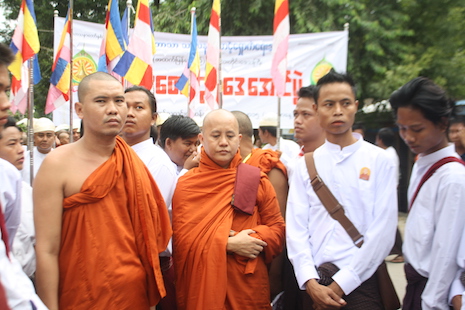
The Buddhist monk Ashin Wirathu, leader of the 969 Movement, during a procession in Mandalay in September. PHOTO: John Zaw
Buddhist nationalism has flourished since political reforms were introduced in 2011. Leading Buddhist monks have formed the Organization for the Protection of Race and Religion, generally known by the abbreviation ‘MaBaTha’, which has the aim of promoting Buddhist interests. MaBaTha monks and nuns have been the driving force behind, among other things, four controversial laws designed to ‘protect race and religion’. The aim of these laws is to protect Buddhist interests, but they are seen by some women’s rights groups and religious minorities as extremely discriminatory.
This Week in South Sudan – Week 44
Monday 26 October The United Nations High Commissioner for Human Rights will deploy a 10-member assessment mission to South Sudan following reports of rights abuses. The SPLM/A (IO) signed the agreement on security arrangements during a transitional period, despite their earlier refusal to do so last month at the security workshop in Addis Ababa. The… Read more »
Unarmed Protests Force Leaders from Power Twice as Often as Violent Uprisings
Research lends support to the Nobel Committee’s rationale for its award of the Nobel Peace Prize for 2015; the revolution in Tunisia shows how non-violent protest can assist in democratization.
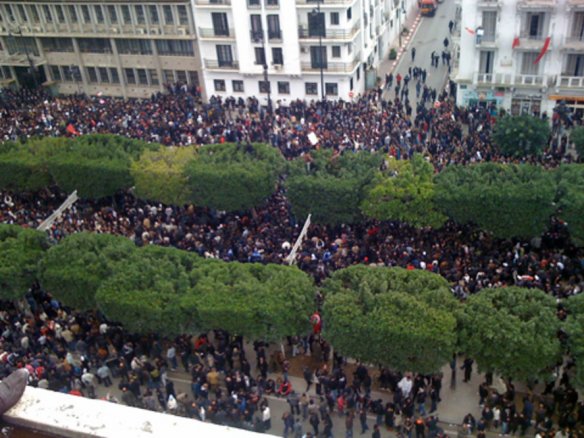
Protesters on Avenue Habib Bourguiba, downtown Tunis on 14 January 2011, a few hours before president Ben Ali fled the country. VOA Photo/L. Bryant
The award of the Nobel Peace Prize to the Tunisian National Dialogue Quartet came as a surprise to most observers. But the committee’s rationale – which cites the so-called Jasmine Revolution and the role of civil society in the democratization of Tunisia, together with the potential for inspiring processes of democratization in other countries – is closely linked to the findings of research conducted in recent years into non-violent protests, democratization and the spread of democracy in a global perspective.
A Predicted Tragedy
The last time that the Palestinians staged a collective uprising in anger and frustration was in 2000. Why is there a new wave of violence now?
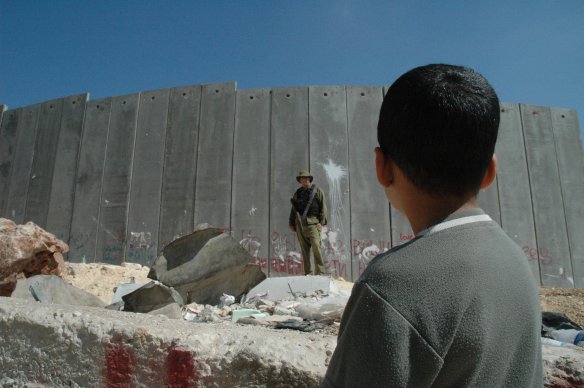
Palestinian boy and Israeli soldier in front of the West Bank barrier. Photo: CC BY 2.0
The Palestinians have been betrayed by everyone: by their own leaders, by Israel, and by the international community. Their sense of hopelessness has bred the recent uncoordinated knife attacks. The fundamental problem – one that is spoken of all too seldom by diplomats and politicians – is Israel’s occupation of Palestinian territory.Read More
This Week in South Sudan – Week 43
Monday 19 October The Government of South Sudanese stated it rescued 50 police and civilians from rebel groups in Western Equatoria. Tuesday 20 October Security for aid workers in South Sudan has sharply deteriorated, as there have been increased incidences of violence, particularly a new trend of sexual violence. IGAD appointed former president of Botswana, Festus Gontebanye… Read more »